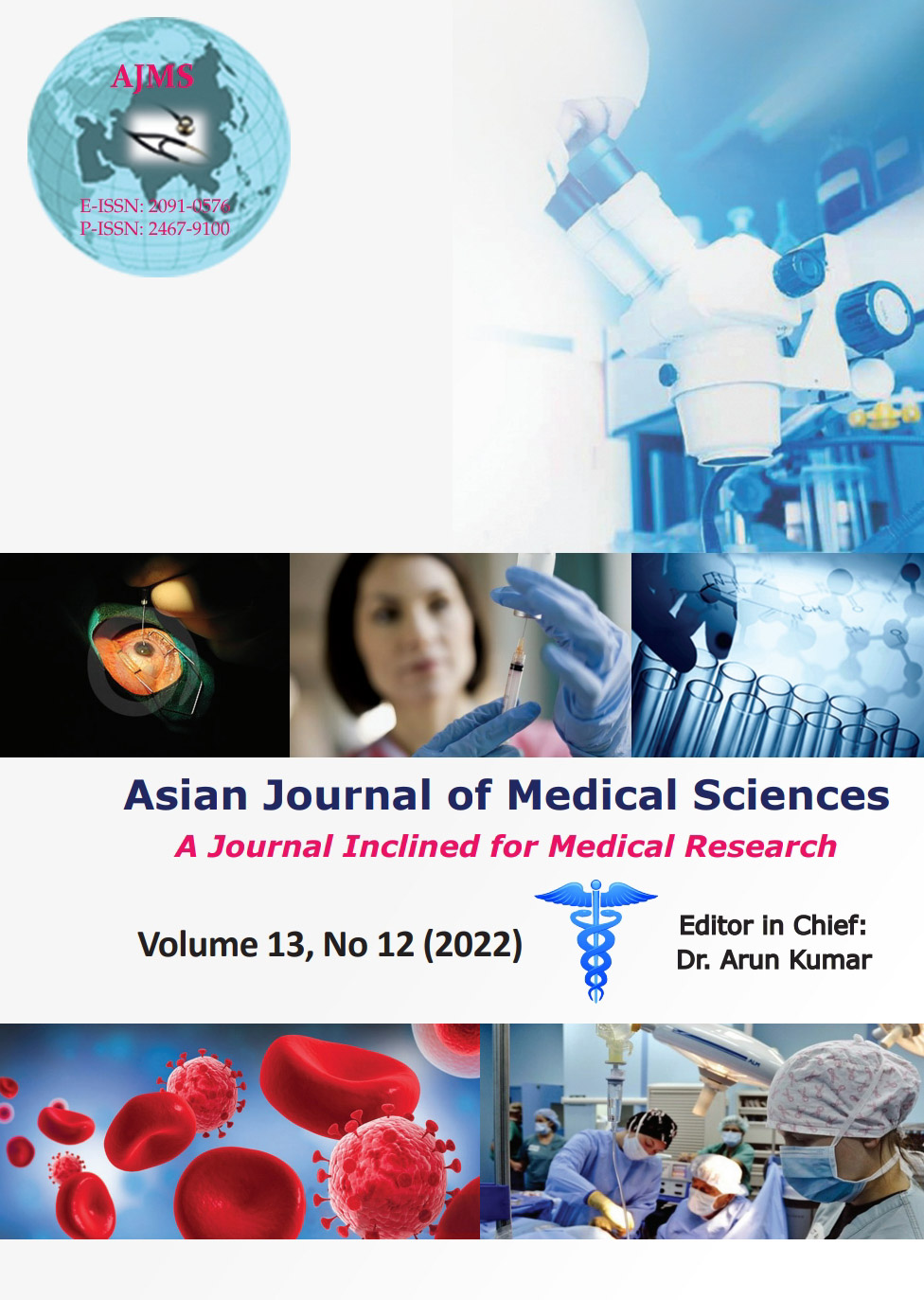Dengue infection in Agra region, Uttar Pradesh: An observational study of seroprevalence, clinicoepidemiological profile, and serotype of dengue virus from tertiary care center
Keywords:
Dengue virus; Dengue fever; NS1 antigen; Seroprevalence; Serotype; IndiaAbstract
Background: Dengue is the most widespread mosquito-borne viral infection, found in tropical and subtropical climates worldwide. The World Health Organization has included dengue as one of the 10 threats to global health in 2019 with rapidly evolving epidemiology.
Aims and Objectives: Given the limitation of data in regard to dengue burden, we have planned the present study with the objectives to provide a comprehensive overview of the seroprevalence, clinicoepidemiological profile, and serotype of dengue virus in Agra region of Uttar Pradesh.
Materials and Methods: We conducted an observational study at viral diagnostic and research laboratory, Sarojini Naidu Medical College, Agra, Uttar Pradesh, from August to December 2021. Our study included all blood specimens received at virology laboratory from clinically suspected cases of dengue infection. For the identification of serotype, NS1-positive samples were sent to King Georges Medical University, Lucknow. For clinical-epidemiological profile of dengue positive patients, data were obtained from records of 203 patients from our hospital.
Results: We received total of 5457 serum samples from suspected patients for dengue serology during the study period. In total, positivity rate was 27.29% (1489/5457) and peak of cases was reported in month of October. Median age of dengue positive cases was 17 years. Dengue hemorrhagic fever (DHS) was diagnosed in almost 41% of patients of 203 patients admitted in our hospital. DEN-2 was reported to be most common serotype (97.1%). In our analsyis, we found that in most patients fall in platelets levels below 50,000 happened during the 5th and 6th day in Dengue fever.
Conclusion: We conclude that our study showed higher seroprevalence of dengue in Agra region with the age group of 0–20 years being infected most. DEN-2 was most prevalent circulating strain, which leads to more severe dengue infection.
Downloads
Downloads
Published
How to Cite
Issue
Section
License
Copyright (c) 2022 Asian Journal of Medical Sciences

This work is licensed under a Creative Commons Attribution-NonCommercial 4.0 International License.
Authors who publish with this journal agree to the following terms:
- The journal holds copyright and publishes the work under a Creative Commons CC-BY-NC license that permits use, distribution and reprduction in any medium, provided the original work is properly cited and is not used for commercial purposes. The journal should be recognised as the original publisher of this work.
- Authors are able to enter into separate, additional contractual arrangements for the non-exclusive distribution of the journal's published version of the work (e.g., post it to an institutional repository or publish it in a book), with an acknowledgement of its initial publication in this journal.
- Authors are permitted and encouraged to post their work online (e.g., in institutional repositories or on their website) prior to and during the submission process, as it can lead to productive exchanges, as well as earlier and greater citation of published work (See The Effect of Open Access).




